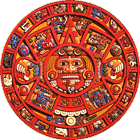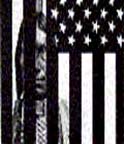1.11.2005
History Professor Compares
U.S. Christian Right
with German Nazism and Fascism
Warning from a Student of Democracy's Collapse
Chris Hedges, New York Times
Posted 2005-01-06 21:18:00.0
http://www.nytimes.com/2005/01/06/nyregion/06profile.html
FRITZ STERN, a refugee from Hitler's Germany and a leading scholar of European history, startled several of his listeners when he warned in a speech about the danger posed in this country by the rise of the Christian right. In his address in November, just after he received a prize presented by the German foreign minister, he told his audience that Hitler saw himself as "the instrument of providence" and fused his "racial dogma with a Germanic Christianity."
"Some people recognized the moral perils of mixing religion and politics," he said of prewar Germany, "but many more were seduced by it. It was the pseudo-religious transfiguration of politics that largely ensured his success, notably in Protestant areas."
Dr. Stern's speech, given during a ceremony at which he got the prize from the Leo Baeck Institute, a center focused on German Jewish history, was certainly provocative. The fascism of Nazi Germany belongs to a world so horrendous it often seems to defy the possibility of repetition or analogy. But Dr. Stern, 78, the author of books like "The Politics of Cultural Despair: A Study in the Rise of the Germanic Ideology" and university professor emeritus at Columbia University, has devoted a lifetime to analyzing how the Nazi barbarity became possible. He stops short of calling the Christian right fascist but his decision to draw parallels, especially in the uses of propaganda, was controversial.
"When I saw the speech my eyes lit up," said John R. MacArthur, whose book "Second Front" examines wartime propaganda. "The comparison between the propagandistic manipulation and uses of Christianity, then and now, is hidden in plain sight. No one will talk about it. No one wants to look at it."
Dr. Stern was a schoolboy in 1933 when Hitler was appointed the German chancellor. He ran home from school that January afternoon clutching a special edition of the newspaper to deliver to his father, a prominent physician.
"I was young," he said, "but I knew it was very bad news."
The street fighting in his native Breslau (now Wroclaw in Poland) between Communists and Nazis, the collapse of German democracy and the ruthless suppression of all opposition marked his childhood, and were images and experiences that would propel him forward as a scholar.
"I saw one of the last public demonstrations against Hitler," he said. "Men, women and children walked through the street and chanted 'Hunger! Hunger! Hunger!' "
His paternal grandparents had converted to Christianity. His parents were baptized at birth, as were Mr. Stern and his older sister. But this did not save the Sterns from persecution. Nazi racial laws still classified them as Jews.
"It was only Nazi anti-Semitism that made me conscious of my Jewish heritage," he said. "I had been brought up in a secular Christian fashion, celebrating Christmas and Easter. My father had to explain it to me."
His schoolmates were swiftly recruited into Hitler youth groups and he and other Jews were taunted and excluded from some activities.
"Many of my classmates found the organized party experience, which included a heavy dose of flag-waving and talk of national strength, very exhilarating," said Dr. Stern, who lost an aunt and an uncle in the Holocaust. "It was something I never forgot."
His family fled to New York in 1938 when he was 12. He eventually went to Columbia University intending to study medicine. But his passion for the past, along with questions about what happened to his homeland, caused him to switch his focus to history. He wanted to grasp how democracies disintegrate. He wanted to uncover the warning signs other democracies should heed. He wanted to write about the seductiveness of authoritarian movements, which he once described in an essay, "National Socialism as Temptation."
"There was a longing in Europe for fascism before the name was ever invented," he said. "There was a longing for a new authoritarianism with some kind of religious orientation and above all a greater communal belongingness. There are some similarities in the mood then and the mood now, although also significant differences."
He warns of the danger in an open society of "mass manipulation of public opinion, often mixed with mendacity and forms of intimidation." He is a passionate defender of liberalism as "manifested in the spirit of the Enlightenment and the early years of the American republic."
"The radical right and the radical left see liberalism's appeal to reason and tolerance as the denial of their uniform ideology," he said. "Every democracy needs a liberal fundament, a Bill of Rights enshrined in law and spirit, for this alone gives democracy the chance for self-correction and reform. Without it, the survival of democracy is at risk. Every genuine conservative knows this."
Dr. Stern, who has two children from a previous marriage, is married to Elisabeth Sifton, a book publisher. They live in New York. He is writing a book called "Five Germanys I Have Known," a combination of memoirs and reflections that looks at Weimar, Nazi Germany, the Federal Republic of Germany, East Germany and unified Germany. He is widely read in Germany and has won its highest literary prize.
"The Jews in Central Europe welcomed the Russian Revolution," he said, "but it ended badly for them. The tacit alliance between the neo-cons and the Christian right is less easily understood. I can imagine a similarly disillusioning outcome."
****
Janice Matthews
9/11 Visibility Project & 911truth.org
Kansas City, MO, USA
816.444.3249
"It is not corruption that brings down a society: it is the acceptance of corruption."
-- Patrick Rattigan
"One of the saddest lessons of history is this: If we've been bamboozled long enough, we tend to reject any evidence of the bamboozle. We're no longer interested in finding out the truth. The bamboozle has captured us. It is simply too painful to acknowledge -- even to ourselves -- that we've been so credulous."
-- Carl Sagan

